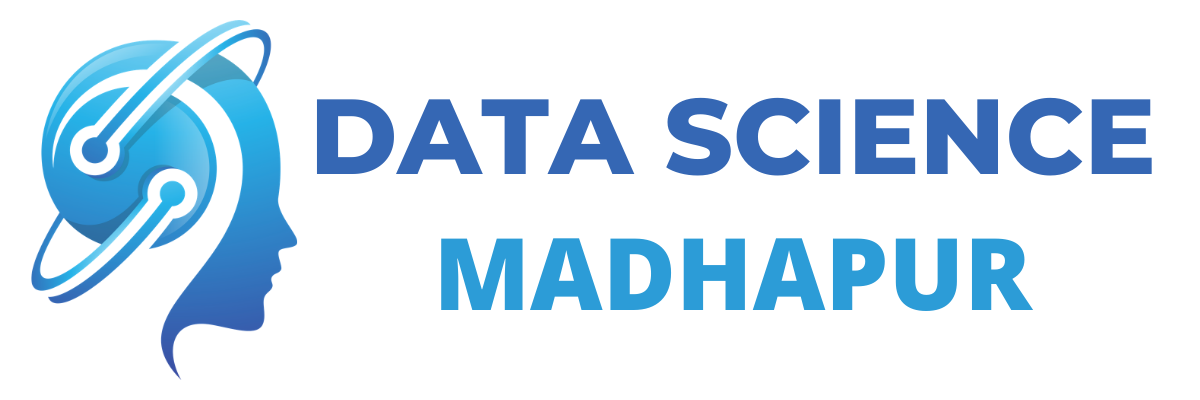To become a data analyst, there are several skills you should develop. These skills include:
Strong analytical and critical thinking
Data analysts need to be able to think logically and analytically, breaking down complex problems into manageable components and drawing meaningful insights from data.Proficiency in data analysis tools
Familiarity with tools such as Excel, SQL (Structured Query Language), and data visualization tools like Tableau or Power BI is essential for data analysts. Knowledge of programming languages such as Python or R can also be beneficial.Data querying and manipulation
Being able to extract and manipulate data from various sources is crucial. Proficiency in SQL allows you to write queries to retrieve data from databases, while Excel or scripting languages like Python or R help you manipulate and clean the data.Statistical knowledge
Understanding basic statistical concepts and techniques is important for analysing data. Knowledge of descriptive statistics, hypothesis testing, regression analysis, and data sampling methods is valuable for drawing meaningful insights from data.Data visualization
The ability to present data effectively through visualizations is vital. Tools like Tableau or Power BI help you create compelling visualizations that aid in conveying insights to non-technical stakeholders.Communication and storytelling
Data analysts must be able to communicate their findings clearly and concisely to both technical and non-technical audiences. The skill to translate complex data insights into actionable insights is highly valued.Domain knowledge
Familiarity with the specific industry or domain in which you plan to work as a data analyst is advantageous. Understanding the context and nuances of the data can provide valuable insights and improve your analysis.Problem-solving and troubleshooting
Data analysts often encounter challenges during data collection, cleaning, or analysis. The ability to solve problems, think creatively, and troubleshoot issues is crucial for success in this role.Attention to detail
Being meticulous and paying attention to details is essential for data analysts. Small errors or inconsistencies in data can significantly impact the accuracy and reliability of your analysis.Continuous learning
The field of data analysis is constantly evolving, with new tools, techniques, and technologies emerging regularly. Data analysts need to be proactive in staying updated with the latest trends and continuously improving their skills.Data wrangling
Data analysts often work with large and messy datasets. Having skills in data cleaning, transformation, and integration techniques will help you prepare the data for analysis effectively. Knowledge of tools like Pandas in Python or data manipulation functions in SQL can be beneficial.Learn the core concepts of Data Analytics Course video on Youtube:
Data modelling and database knowledge
Understanding database structures, normalization, and relational database concepts is valuable for working with large datasets. Proficiency in database management systems (DBMS) like MySQL, PostgreSQL, or Oracle can help you query and analyze data efficiently.Data storytelling
Being able to craft compelling narratives around data is crucial. Data analysts should have the ability to tell a story using data visualizations, effectively conveying insights and recommendations to stakeholders.Machine learning and predictive modelling
While not strictly required for all data analyst roles, having a basic understanding of machine learning algorithms and predictive modeling techniques can be advantageous. It allows you to apply more advanced analytics methods to uncover patterns, make predictions, and generate actionable insights.Data privacy and ethics
With the growing concern around data privacy, understanding the ethical implications of handling data is crucial. Familiarize yourself with data protection regulations, such as GDPR or CCPA, and adhere to best practices for handling sensitive and confidential data.Time management and project management
Data analysts often work on multiple projects simultaneously and have to meet deadlines. Strong time management and project management skills will help you prioritize tasks, allocate resources efficiently, and deliver results within designated timelines.Collaboration and teamwork
Data analysis is rarely done in isolation. Collaborating with other team members, such as data scientists, business analysts, or data engineers, is common. Being able to work effectively in a team, communicate ideas, and contribute to collective goals is important.Business acumen
Understanding the business context and objectives is essential for providing valuable insights as a data analyst. Developing a good understanding of the industry, market dynamics, and key performance indicators (KPIs) will help you align your analysis with business goals and provide actionable recommendations.Data governance and quality assurance
Data analysts should understand the importance of data governance practices and ensure data accuracy, consistency, and integrity. Knowledge of data quality assessment techniques and data validation processes is valuable for maintaining reliable and trustworthy data.Business intelligence tools
Familiarity with business intelligence (BI) tools like Microsoft Power BI, QlikView, or Tableau can provide you with additional capabilities for data analysis and reporting. These tools offer advanced functionalities for data exploration, interactive dashboards, and ad-hoc reporting.A/B testing and experimental design
Understanding the principles of A/B testing and experimental design can be beneficial for data analysts involved in conducting experiments or evaluating the impact of changes. Knowledge of statistical significance, sample size determination, and experimental analysis will help you make data-driven decisions based on test results.Data mining and data extraction
Proficiency in techniques and tools for data mining and extraction allows you to discover patterns, trends, and insights from large datasets. Knowledge of data scraping, text mining, or machine learning algorithms for pattern recognition can be valuable in certain analytical contexts.Data visualization principles
Building on the previous point about data visualization, understanding the principles of effective visual communication is important. Knowledge of color theory, chart selection, and visual perception can help you create visually appealing and informative data visualizations.Storytelling with data
Beyond creating visualizations, being able to tell a compelling story with data involves structuring your analysis, highlighting key findings, and presenting them in a coherent and engaging manner. Developing storytelling skills will help you effectively convey the meaning and impact of your analysis.Continuous improvement and adaptability
The field of data analysis is dynamic, with new tools, techniques, and challenges emerging regularly. Having a growth mindset, being open to learning, and staying adaptable to changes are crucial qualities for a data analyst. Industry-specific knowledgeDepending on the industry or sector you work in, having domain-specific knowledge can significantly enhance your effectiveness as a data analyst. Understanding industry trends, key metrics, and regulatory frameworks allows you to provide more targeted and impactful insights.Data Science Placement Success Story
Data Science Training Institutes in Other Locations
Tirunelveli, Kothrud, Ahmedabad, Hebbal, Chengalpattu, Borivali, Udaipur, Trichur, Tiruchchirappalli, Srinagar, Ludhiana, Shimoga, Shimla, Siliguri, Rourkela, Roorkee, Pondicherry, Rajkot, Ranchi, Rohtak, Pimpri, Moradabad, Mohali, Meerut, Madurai, Kolhapur, Khammam, Jodhpur, Jamshedpur, Jammu, Jalandhar, Jabalpur, Gandhinagar, Ghaziabad, Gorakhpur, Gwalior, Ernakulam, Erode, Durgapur, Dombivli, Dehradun, Cochin, Bhubaneswar, Bhopal, Anantapur, Anand, Amritsar, Agra , Kharadi, Calicut, Yelahanka, Salem, Thane, Andhra Pradesh, Greater Warangal, Kompally, Mumbai, Anna Nagar, ECIL, Guduvanchery, Kalaburagi, Porur, Chromepet, Kochi, Kolkata, Indore, Navi Mumbai, Raipur, Coimbatore, Bhilai, Dilsukhnagar, Thoraipakkam, Uppal, Vijayawada, Vizag, Gurgaon, Bangalore, Surat, Kanpur, Chennai, Aurangabad, Hoodi,Noida, Trichy, Mangalore, Mysore, Delhi NCR, Chandigarh, Guwahati, Guntur, Varanasi, Faridabad, Thiruvananthapuram, Nashik, Patna, Lucknow, Nagpur, Vadodara, Jaipur, Hyderabad, Pune, Kalyan.
Data Analyst Courses In Other Locations
Tirunelveli, Kothrud, Ahmedabad, Chengalpattu, Borivali, Udaipur, Trichur, Tiruchchirappalli, Srinagar, Ludhiana, Shimoga, Shimla, Siliguri, Rourkela, Roorkee, Pondicherry, Rohtak, Ranchi, Rajkot, Pimpri, Moradabad, Mohali, Meerut, Madurai, Kolhapur, Khammam, Jodhpur, Jamshedpur, Jammu, Jalandhar, Jabalpur, Gwalior, Gorakhpur, Ghaziabad, Gandhinagar, Erode, Ernakulam, Durgapur, Dombivli, Dehradun, Bhubaneswar, Cochin, Bhopal, Anantapur, Anand, Amritsar, Agra, Kharadi, Calicut, Yelahanka, Salem, Thane, Andhra Pradesh, Warangal, Kompally, Mumbai, Anna Nagar, Dilsukhnagar, ECIL, Chromepet, Thoraipakkam, Uppal, Bhilai, Guduvanchery, Indore, Kalaburagi, Kochi, Navi Mumbai, Porur, Raipur, Vijayawada, Vizag, Surat, Kanpur, Aurangabad, Trichy, Mangalore, Mysore, Chandigarh, Guwahati, Guntur, Varanasi, Faridabad, Thiruvananthapuram, Nashik, Patna, Lucknow, Nagpur, Vadodara, Jaipur, Hyderabad, Pune, Kalyan, Delhi, Kolkata, Noida, Chennai, Bangalore, Gurgaon, Coimbatore.
Address:
360DigiTMG – Data Analytics, Data Science Course Training Hyderabad
2-56/2/19, 3rd floor,, Vijaya towers, near Meridian school,, Ayyappa Society Rd, Madhapur,, Hyderabad, Telangana 500081
Contact Number: +91-9989994319/1800-212-654321



